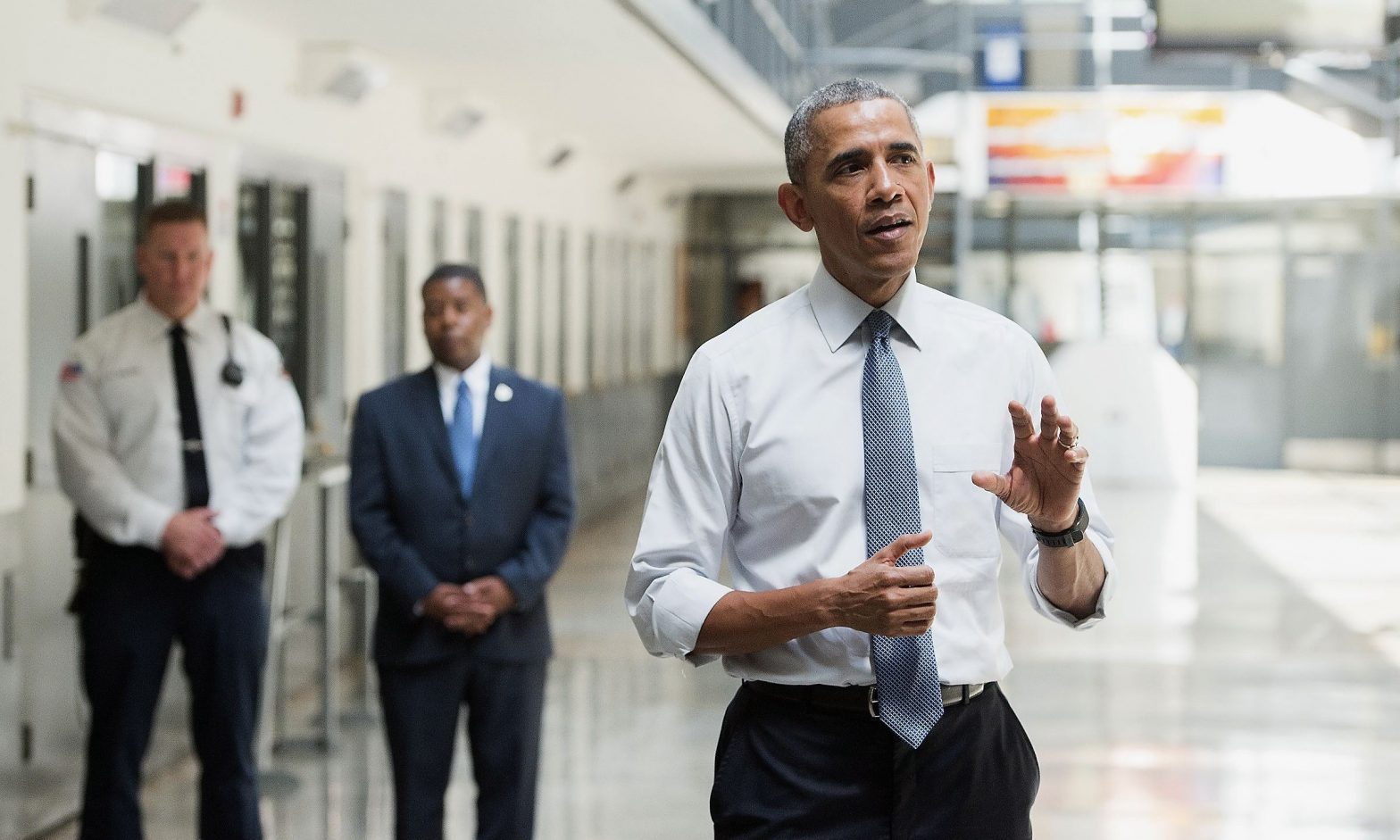President Obama has just a year left in office, and he is finishing strong. With 208,000 federal prisoners and over half of them nonviolent drug offenders, the Obama administration is building on recent successes with a strong push for criminal justice reform.
These reform initiatives began on Monday, July 13 when President Obama commuted the sentences of 46 nonviolent drug offenders on the grounds that the punishments did not fit the crimes. At the NAACP’s annual convention the next day, President Obama said that the 46 commuted offenders were sent to halfway houses and would soon be back in their communities. The president personally wrote to each of the prisoners, saying, “I believe that, at its heart, America is a nation of second chances.”
The remarks were followed by a visit to the El Reno facility in Oklahoma on Thursday, July 16 in what was truly a historic moment, as President Obama is the first sitting president to ever visit a federal prison. The president, whose own marijuana and cocaine use as a young adult could have made him an inmate, said that it is normal for young people to make mistakes, but the difference between the inmates and most Americans is that the inmates lack resources and social support structures that can help them make the right decisions.
It is rare to find an issue with as much bipartisan support as criminal justice reform, with even Republican House Speaker John Boehner telling reporters, “We’ve got a lot of people in prison, frankly, that … really don’t need to be there.” Meanwhile, former President Clinton recently admitted that his anti-crime legislation cast too wide a net such that minor criminals were sent to jail for too long. Congress plans to bring a sentencing reform bill called the SAFE Justice Act to the floor with the hope that this legislation will pass by the end of the year.
To determine whether these kinds of reform initiatives will be effective on the national scale, many analysts turn to California, a state that has been at the forefront of criminal justice reform with the passage of Proposition 47. Under Proposition 47, the use of drugs was changed from a felony to a misdemeanor, meaning that nonviolent drug offenders would spend less than a year in jail or pay a fine as punishment.
Some critics argue, however, that although reducing the sentences of nonviolent drug offenders will solve the issue of prison overcrowding, releasing these prisoners early is not going to help society. Statistics from California after Proposition 47’s implementation suggest that there has been more burglary and theft of motor vehicles as a result, but advocates explain that this is the result of systemic problems that make crime a means to survival.
For this prison reform system to be robust, the Obama administration needs to make sure that all of the prisoners go into rehabilitation programs and that these programs are effective in facilitating a seamless re-entry back into society. Just as the pen is mightier than the sword, rehabilitation is more important than retribution. Most of these drug offenders are not hardened criminals; they just need the right guidance. Although it may seem that Obama is pushing for a more lenient criminal justice system, this is an unfair characterization of what has been proposed. Ultimately, bipartisan reform efforts strive for a criminal justice system that is smart on crime rather than simply tough on crime.

